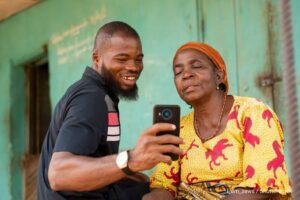A recent report, “The Cost of Media Stereotypes to Africa,” sheds light on the financial burden that negative and often inaccurate media portrayals of Africa are placing on the continent. Co-authored by Africa Practice and Africa No Filter, the report reveals that Africa loses an estimated $4.2 billion annually due to the persistent stereotypes and negative coverage from Western media outlets.
Despite notable progress and positive developments across the continent, the report shows that Western media has largely continued to paint Africa in a negative light. By analyzing news stories from the 1990s and the 2010s, the study found little improvement in the tone of media coverage over the past two decades. Although there are slight shifts towards more balanced reporting, the narrative continues to be overwhelmingly skewed towards highlighting political unrest, corruption scandals, health crises, and other challenges, while underreporting Africa’s successes.
“Africa is arguably still unique when looking at the volume of negative coverage,” the report states. “Moreover, the specific stereotypes that emerge are unique to Africa and are most probably steeped in problematic traditional views of the continent.”
This slanted portrayal of Africa has real economic consequences. The report estimates that countries across the continent lose between 0.026% and 0.144% of their GDP per year due to biased media coverage. This amounts to a staggering $50 million to $495 million annually for individual nations, resulting in a collective $4.2 billion loss over the maturity of their financial bonds.
The disproportionate focus on Africa’s challenges often overshadows the positive strides made in various sectors, including advancements in technology, economic growth, and improvements in healthcare and education. According to the report, this narrative harms Africa’s global image, discourages foreign investment, and diminishes opportunities for tourism, manufacturing, and financial services.
Also, read; Noah Lyles Proposes to Jamaican Sprinter Junelle Bromfield
The report highlights the detrimental impact of this coverage, particularly during election cycles. While political tension is a common issue worldwide during elections, the level of attention devoted to African nations’ political conflicts is often amplified. This imbalance contributes to a skewed global perception that Africa is in a perpetual state of crisis.
Inaccurate or incomplete representations of the continent do not just affect international perceptions—they also have a direct impact on Africa’s credit ratings. The biased portrayal of Africa’s political and economic landscape leads to diminished investor confidence, further complicating efforts to secure funding for development projects or attract foreign capital.
To address this issue, the report calls for more balanced and accurate media coverage of Africa. While it is crucial to report on challenges, equal emphasis should be placed on positive developments and successes. African journalists, in particular, are encouraged to play a pivotal role in reshaping the global narrative. By telling authentic African stories that capture the full spectrum of life on the continent, local journalists can counteract stereotypes and promote a more comprehensive understanding of Africa.
Ultimately, transforming the way Africa is portrayed in the media could have far-reaching benefits. A more balanced narrative would enhance Africa’s credit ratings, boost investor confidence, and pave the way for greater economic growth in key sectors.
As the report concludes, “Media coverage has to become more unbiased and inclusive of positive developments as well as other events.” By fostering a more nuanced and accurate view of Africa, the global community can better appreciate the continent’s potential, rather than focusing solely on its struggles.

